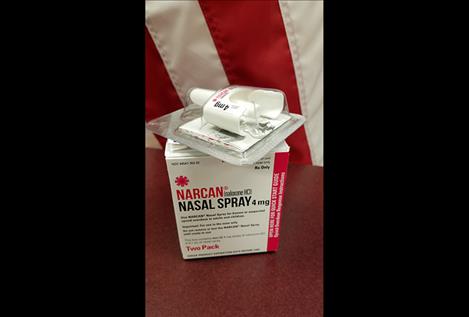Polson officers now carry naloxone hydrochloride
Hey savvy news reader! Thanks for choosing local.
You are now reading
1 of 3 free articles.
News from Polson Police Sergeant George Simpson
POLSON – The mission of your Polson Police Department is to make Polson a safe and pleasant place to live, work, learn and play. Our business is community service and we are in a constant learning mode to enact positive changes to the ways we conduct business to fulfill our mission. It is by this guiding philosophy that your patrol officers now carry Narcan®.
Your officers will now be better equipped to aid any person who may be suffering from an opioid/opiate overdose. Patrol officers are now trained and equipped to administer naloxone hydrochloride, commonly known by the trade name NARCAN®, to revive the victim of any apparent drug overdose.
Opiates are drugs with morphine-like effects, derived from opium. Some common examples include heroin, synthetic opioids such as fentanyl, and pain relievers available by prescription, such as oxycodone, hydrocodone, and codeine. Opioids are any synthetic narcotic that has opiate-like effects but is not derived from opium.
An opioid overdose is an acute condition that may include the following signs: physical illness, inability to awaken, pinpoint pupils, slow or shallow breathing, blue lips and/or fingertips or even death resulting from the consumption of opioids or opiates. If you are witnessing anyone experiencing these symptoms you should notify 9-1-1 immediately.
Police Chief Wade Nash said: “The NARCAN® nasal spray your patrol officers now carry is an essential piece of equipment to reviving a victim or temporarily reversing the effects of a drug overdose, thereby extending the precious moments until a higher level of medical care is available. If we can safely intervene and perhaps stop a fatal opioid overdose, we will. Our fundamental responsibility as officers is to safeguard lives.”
















